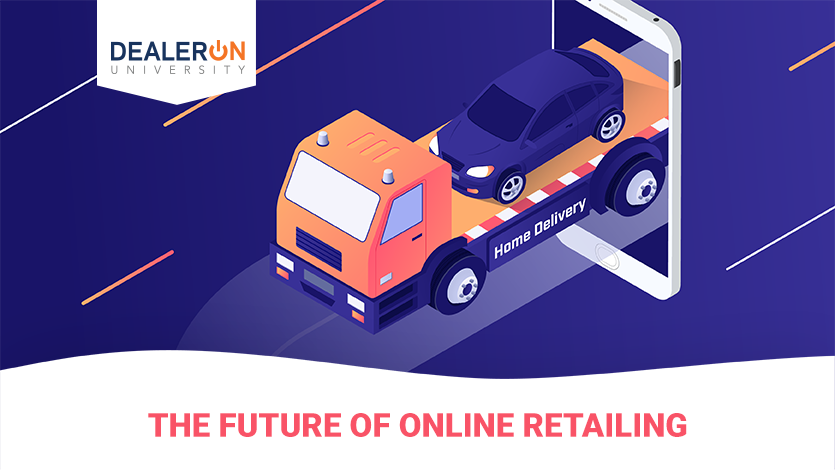

When customers’ transportation needs and income take a nosedive at the same time, you don’t need to be a marketing guru to know it’s not good news for car dealerships. I’m not here to pile on more gloom and doom. On the contrary; while the market is not in the best shape, the news isn’t universally bad. So keep in mind that while certain numbers are down in many cases, what we’re seeing is not the death of an industry, but rather a call for deeper change. A simple signal to adapt to the changing terrain.
Automotive retailing has been an outlier in the larger marketplace. For example, haggling over price was once common with many goods or services, now, at least in the United States, it’s extremely rare. Some of these peculiarities can be chalked up to cars being one of the three most expensive things a person will buy in their lifetime, while others are a holdover from a pre-internet age. While the Tesla model of entirely-online retailing is the exception, the very fact that it exists and appears to be doing just fine, gives a look inside a crystal ball at the market’s general direction.
And then the pandemic hit.
There were already numerous indications of a looming recession, but the virus supercharged that. Every kind of business was hurt, though the way of doing business in automotive retailing, focusing on handshakes and in-person haggling, was uniquely damaged.
The good news is that this is merely the acceleration of a trend that was already well on the way. A larger percentage of the customer base for cars, and one that’s growing every day, are individuals who have lived most or all of their lives in a world in which the internet was their primary means of shopping. In other words, the car-buying experience as it existed for previous generations was becoming more and more unusual with every Zoomer who gets their license. While one survey only had 21% of respondents say they would prefer to purchase online, 45.3% said they would be more likely during the pandemic. This is hardly a tipping point, but it does point to the need for a more robust online presence for all dealerships.
Test drives aren’t going anywhere, and many dealerships have already adapted to the realities of the pandemic, offering home delivery and sterilization for customers. This is a level of convenience that’s fairly easy to provide, and can work wonders for your bottom line. Imagine it from the customer’s standpoint as well. Getting a car delivered to you helps keep the sale feeling like an event, and the service shows that the dealership cares about both convenience and health. Both of these assign value to the transaction, cementing a customer’s decision to buy and fostering good customer relationships.
While the data is largely anecdotal at this point, dealerships who have reported steady, and in a few cases increasing sales, have all decided to lean into a more online mode of retailing. This doesn’t mean an end-to-end change where you’re buying a car like you would order a new pair of earbuds off Amazon. It means putting more of the process online, allowing your customers to shop as they’ve gotten used to shopping and only moving to an in-person interaction at the end of the process.
Your website was already important, but now it’s become the storefront your customers are far more comfortable to enter. I’ve talked in this space before about the importance of showcasing your inventory completely and accurately via photography. It’s also a matter of having your prices be fully transparent to the consumer. At DealerOn, we offer a new product called APEX that allows your customers to design a payment plan for any vehicle on your lot. By the time they get to you, they have a workable payment, and you have the kind of detailed lead that before now you could only dream of.
In terms of long-term trends, one dealership in Charlottesville, Virginia, saw their in-home deliveries skyrocket from 5% of total sales to 25%. Don’t think of this as a trend that will be reversed as soon as we get the all-clear, either. Shoppers are growing accustomed to the convenience of online shopping and home delivery. They will begin to gravitate toward stores that offer this experience and pass over the ones that don’t.
No quote is more striking than this one from Liza Borches, the CEO of Carter Myers Automotive: “The sales associate sitting in the showroom waiting for the customer to come in won’t exist past COVID. [Dealerships] need to create relationships in person and online.” That’s not an obituary for the industry. Rather, this is a call for a manageable change. All you need is an experienced team handling your online marketing.
https://www.mckinsey.com/business-functions/marketing-and-sales/our-insights/how-consumers-behavior-in-car-buying-and-mobility-changes-amid-covid-19#
https://www.leithcars.com/blogs/1421/automotive/car-buying-online/
https://www.bloomberg.com/news/articles/2020-06-12/buying-a-car-online-is-easier-after-coronavirus-triggered-changes
https://www.freep.com/story/money/cars/2020/05/28/car-buying-after-coronavirus-pandemic-puts-consumers-control/5213328002/


